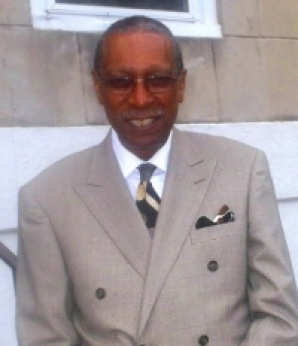
The calendar was full in February as several campus groups recognized Black History Month with films, lectures and conversations.
The Institute for Forgiveness and Reconciliation (IFR), the history club and history honor society, Phi Alpha Theta, and the Black Student Union (BSU) set out to engage and educate the College community on issues facing the African-American population today and in the past.
“Unless students are majors or minors in history, they do not generally take more than the core curriculum’s one history course requirement,” says Lorraine Coons, Ph.D., chair of the history department and faculty advisor for both the history club and Phi Alpha Theta. “So in order to broaden our student’s historical education, we schedule these events outside of class in an effort to engage the larger CHC student community in a conversation about the challenges and struggles the black community has faced both historically and in our world today.”
One of these events is the film discussion series which the history department has run each year to commemorate Black History Month, Women’s History Month (March) and Holocaust Awareness Month (April).
This year, the films shown were the Academy Award-winning film for best motion picture in 2014, 12 Years a Slave, and The Help, which gave the Best Supporting Actress Oscar to Octavia Spencer. Following each film there was an introduction and discussion on the subject material led by David Contosta, Ph.D., for 12 Years a Slave and by Coons for The Help.
In addition to the film screenings, the department welcomed Lawrence Little, Ph.D., former SCPS professor, who spoke on “Enforcing Apartheid: Racial Terror and Lynching in America.”
“All of the events were well-received, with several students even asking me to invite Dr. Little to teach a course in African-American history at the undergraduate level,” says Coons.
These events, as well as the IFR “When Voices Meet” cultural event, welcoming Sharon Katz to campus to discuss her life during apartheid in South Africa, were co-sponsored by the BSU, an organization that began last semester and has positively changed the conversation and climate on campus ever since.
“A lot of our collaborations came from the other organizations and clubs on campus,” says Kaileik Asbury ’16, president and founder of the BSU. “It was really cool because it meant they were looking out for us and valuing the unique input we had to offer.”
The BSU, which hosts several events each month, focused on a powerful and relevant topic simply called, “The Race Card.” A diversity walk was held and discussions ensued on topics such as white privilege and what the race card is and how it is used. According to Asbury, the event was well-attended.
Chartwells and the BSU also offered a themed menu in honor of the month.
“Chartwells reached out to us asking if we’d like a say in the menu and we jumped at the opportunity,” says Melissa Allen-Bey ’17, BSU treasurer. “We had many students come up to us expressing how much they enjoyed our suggestions. Overall, it was very successful.”
— Marilee Gallagher ’14



